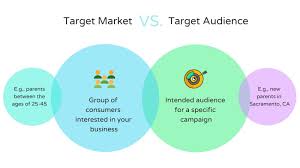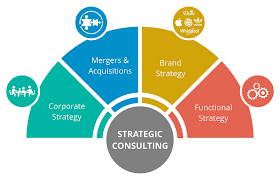The Importance of Salary: Beyond the Numbers
Salary is a topic that holds significant importance in our lives. It serves as a measure of our worth, recognition for our skills and contributions, and provides the means to support ourselves and our loved ones. While salary is often associated with financial stability, it encompasses much more than just numbers on a payslip.
For many individuals, salary is closely tied to job satisfaction. It reflects the value placed on their work and can influence their motivation and commitment to their role. A fair and competitive salary not only rewards employees for their hard work but also fosters a sense of loyalty and dedication towards their organization.
Beyond personal satisfaction, salary plays a crucial role in shaping one’s quality of life. It determines our ability to meet basic needs, such as food, shelter, healthcare, and education. A well-structured salary can provide individuals with the means to lead a comfortable life, pursue personal aspirations, and support their families.
Moreover, salary acts as an incentive for professional growth and development. It can serve as a benchmark for employees to strive for higher levels of performance and achievement. When employees see that their efforts are recognized through increased compensation, they are more likely to invest in enhancing their skills and knowledge.
Salary also contributes to employee retention within an organization. When employees feel fairly compensated for their work, they are less likely to seek opportunities elsewhere solely based on financial reasons. Organizations that prioritize fair compensation are more likely to retain talented individuals who contribute significantly towards achieving company goals.
It is important for employers to ensure transparency when it comes to salary discussions. Clear communication regarding pay scales, performance-based incentives, and opportunities for growth can build trust among employees. Transparent salary structures foster an environment where employees feel valued and motivated to excel in their roles.
However, it is crucial to acknowledge that salary alone does not define job satisfaction or individual worth. Factors such as work-life balance, job security, career progression, and a positive work environment also contribute significantly to overall job satisfaction. It is the combination of these elements that creates a fulfilling and rewarding professional experience.
In conclusion, salary is more than just a number. It represents recognition, motivation, and the means to lead a comfortable life. A fair and competitive salary not only attracts and retains talent but also fosters loyalty and dedication among employees. Organizations that prioritize transparent communication and fair compensation are more likely to create an environment where individuals thrive both personally and professionally.
Frequently Asked Questions About Salary in the UK: Answers and Insights
- What is a good salary in UK?
- How can I ask for salary?
- Is 28000 a good salary UK?
- What is a good salary in the UK?
- What is a salary example?
- What is pay or salary?
- What do you mean salary?
- Is 90k a good salary UK?
- What is the full meaning of salary?
What is a good salary in UK?
Determining what constitutes a “good” salary in the UK can vary depending on various factors such as location, industry, level of experience, and personal circumstances. However, to provide a general idea, let’s consider some figures.
According to the Office for National Statistics (ONS) data from April 2021, the median gross weekly earnings for full-time employees in the UK is around £585. This equates to an annual salary of approximately £30,420.
Keep in mind that this figure represents the midpoint, meaning that half of the full-time workers earn more and half earn less. It’s also worth noting that salaries can significantly differ between industries. For example, sectors such as finance, technology, and professional services often offer higher average salaries compared to other fields.
Moreover, regional variations exist across the UK. Salaries tend to be higher in major cities like London and Manchester due to higher living costs and demand for specific skills. In contrast, salaries may be relatively lower in rural areas or regions with a lower cost of living.
Ultimately, what constitutes a “good” salary depends on individual circumstances and expectations. Factors such as personal financial goals, lifestyle choices, and family responsibilities all play a role in determining what is considered satisfactory compensation.
It’s advisable to research industry-specific salary benchmarks and take into account factors like job responsibilities, qualifications held, experience level, and market demand for specific skills when assessing what might be considered a good salary for your specific situation. Additionally, seeking advice from professionals or recruiters within your field can provide valuable insights into prevailing salary ranges.
How can I ask for salary?
When it comes to asking about salary, it’s important to approach the conversation with professionalism and tact. Here are some tips to help you navigate this discussion effectively:
- Timing is key: Choose an appropriate time to discuss salary, preferably after you have received a job offer or during a performance review. This shows that you are serious about the role and have considered your value to the organization.
- Do your research: Before discussing salary, research industry standards and typical pay ranges for similar positions in your location. This will give you a benchmark to negotiate from and ensure that your expectations are realistic.
- Be confident and prepared: Approach the conversation with confidence, knowing your worth and the value you bring to the organization. Prepare talking points that highlight your skills, experience, and achievements that justify a higher salary.
- Focus on your qualifications: Instead of directly asking about salary, emphasize your qualifications and ask questions related to career growth opportunities, performance-based incentives, or benefits packages. This allows you to gather information about compensation without appearing solely focused on money.
- Express enthusiasm for the role: Show genuine interest in the job itself before discussing salary. Emphasize how excited you are about the opportunity and how eager you are to contribute to the organization’s success. This demonstrates that your motivation extends beyond financial considerations.
- Use a range rather than a specific figure: When discussing salary expectations, provide a realistic range based on your research rather than giving an exact figure. This allows for flexibility in negotiations while still indicating your desired compensation level.
- Be open to negotiation: Keep in mind that employers may have budget constraints or specific salary bands for certain positions. Be open to negotiating other aspects of compensation such as additional vacation days, flexible working arrangements, or professional development opportunities if they cannot meet your desired salary.
- Maintain professionalism: Throughout the conversation, maintain a professional tone and avoid making demands or becoming confrontational if the initial offer is not what you expected. Instead, focus on finding common ground and reaching a mutually beneficial agreement.
Remember, discussing salary is a normal part of the job search or performance evaluation process. By approaching the conversation with professionalism, research, and a focus on your qualifications, you can increase your chances of reaching a satisfactory outcome.
Is 28000 a good salary UK?
Determining whether £28,000 is a good salary in the UK depends on various factors such as location, industry, experience level, and individual circumstances. In some regions with a lower cost of living, this salary may be considered reasonable. However, in areas with higher living costs like London or other major cities, it may be more challenging to maintain a comfortable lifestyle on this income alone.
It’s important to consider how this salary aligns with your personal financial goals and obligations. Assessing factors such as housing costs, transportation expenses, debt repayments, and other essential living expenses will help determine if £28,000 can adequately cover your needs.
Additionally, comparing your salary to industry standards and average incomes in your profession can provide further context. Researching similar roles and their corresponding salary ranges can give you an idea of where you stand within the job market.
Remember that salary is just one aspect of overall job satisfaction. Consider other benefits offered by the employer such as healthcare coverage, retirement plans, vacation time, and opportunities for career growth when evaluating the value of a particular salary package.
Ultimately, what constitutes a “good” salary is subjective and varies from person to person based on individual circumstances and priorities. It’s important to assess your own financial situation and goals to determine if £28,000 meets your needs and expectations.
What is a good salary in the UK?
Determining what constitutes a “good” salary in the UK can vary depending on various factors such as location, industry, experience, and individual circumstances. However, there are some general guidelines that can help provide an idea of what is considered a decent salary in the UK.
According to the Office for National Statistics (ONS), the median gross weekly earnings for full-time employees in the UK is around £585 per week, which translates to approximately £30,420 per year. This figure can serve as a baseline for assessing salary levels.
In major cities like London, where living costs tend to be higher than other parts of the country, salaries may be relatively higher to accommodate these expenses. It’s not uncommon for professionals in certain industries or senior positions to earn significantly more than the national average.
It’s important to consider that different professions and industries have varying salary ranges. For example, sectors such as finance, law, medicine, and technology often offer higher salaries compared to others. Additionally, individuals with specialized skills or extensive experience may command higher compensation.
Ultimately, what constitutes a good salary depends on individual circumstances and personal expectations. Factors such as cost of living, financial responsibilities (such as mortgage or rent payments), lifestyle choices, and personal goals all play a role in determining what is considered satisfactory compensation.
When considering salary expectations or negotiations, it can be helpful to research industry standards and average salaries specific to your field. Consulting online resources like job portals or industry-specific surveys can provide insights into typical salary ranges for different roles.
Furthermore, it’s important to remember that job satisfaction should not solely revolve around monetary compensation. Other aspects like work-life balance, career progression opportunities, company culture, benefits packages (including healthcare and retirement plans), and job security should also be taken into account when evaluating overall job satisfaction.
Ultimately, a good salary is one that allows individuals to meet their financial needs comfortably while also providing room for personal growth and achieving a desirable quality of life.
What is a salary example?
An example of a salary could be as follows:
John works as a marketing manager for a medium-sized company. He has been with the company for five years and has steadily progressed in his role. Due to his experience and expertise, John’s employer values his contributions and offers him a competitive salary package.
John’s annual salary is £50,000. This includes his base salary of £45,000 per year, along with an additional £5,000 in performance-based bonuses. His employer also provides him with benefits such as health insurance, retirement contributions, and paid time off.
On a monthly basis, John receives a gross salary of approximately £4,166. After taxes and deductions for national insurance contributions and pension contributions are taken into account, John’s net monthly salary amounts to around £3,200.
This example illustrates how a salary can be structured based on an individual’s role, experience level, performance incentives, and additional benefits provided by the employer. It showcases how the total compensation package is broken down into base salary and other components to form an employee’s overall remuneration.
What is pay or salary?
Pay or salary refers to the financial compensation that an individual receives in exchange for their work or services. It is typically expressed as a fixed amount of money paid on a regular basis, such as monthly or bi-weekly. Pay can be determined through various factors, including job responsibilities, experience, qualifications, and market demand for specific skills.
Salary is often agreed upon in advance and outlined in an employment contract or agreement between the employer and employee. It serves as a form of recognition for the time, effort, and expertise that individuals contribute to their work.
The amount of pay or salary can vary significantly depending on factors such as industry standards, geographical location, company size, and the level of responsibility associated with the position. It may also be influenced by additional benefits and perks offered by employers, such as healthcare coverage, retirement plans, bonuses, or stock options.
Pay is an essential aspect of employment as it provides individuals with the means to support themselves and their families. It enables individuals to meet their basic needs such as food, shelter, clothing, and healthcare. Additionally, pay plays a significant role in determining an individual’s standard of living and overall quality of life.
It is important for both employers and employees to establish clear expectations regarding pay or salary during the hiring process. Open communication about compensation ensures that both parties have a mutual understanding of what is expected and helps avoid potential conflicts or misunderstandings in the future.
Overall, pay or salary represents the monetary value assigned to an individual’s work or services within an employment relationship. It serves as a crucial component of one’s professional life by providing financial stability and recognition for their contributions.
What do you mean salary?
Salary refers to the fixed amount of money that an employee receives on a regular basis in exchange for their work or services. It is typically paid in equal installments, such as monthly or biweekly, and is often stated as an annual figure before being divided into regular payments. Salary is a key component of an employment contract and serves as a form of compensation for the work performed by an individual within an organization. It can vary depending on factors such as job position, industry, level of experience, qualifications, and the overall economic conditions prevailing in a particular region or country.
Is 90k a good salary UK?
Determining whether a salary of 90k is considered good in the UK depends on various factors, including the individual’s occupation, location, and personal circumstances. In general, 90k is considered a high salary in the UK and places individuals in the upper income bracket.
However, it’s important to note that the cost of living can vary across different regions in the UK. For example, living expenses tend to be higher in London compared to other parts of the country. Therefore, while 90k may be considered a good salary in many areas, it might provide a different level of financial comfort depending on where one resides.
Additionally, personal circumstances such as family size and financial commitments also play a role in determining whether a salary is sufficient. It’s important to consider factors such as housing costs, education expenses, healthcare needs, and savings goals when evaluating the adequacy of a salary.
Ultimately, what constitutes a “good” salary is subjective and varies from person to person based on their individual needs and aspirations. It’s advisable for individuals to assess their own financial requirements and goals when determining whether a salary of 90k is sufficient for their specific situation.
What is the full meaning of salary?
The full meaning of the word “salary” is derived from the Latin term “salarium.” In ancient Rome, soldiers were often paid in salt, which was a valuable commodity at the time. The Latin word “salarium” referred to the allowance of salt given to Roman soldiers as part of their payment.
Over time, the meaning of “salarium” evolved, and it came to represent any form of regular payment or compensation given to individuals for their work or services. In modern usage, salary refers to a fixed amount of money that is paid regularly to an employee in exchange for their labor or services.
Unlike wages, which are typically calculated based on hours worked or output produced, a salary is usually expressed as an annual amount and paid on a monthly or bi-monthly basis. Salaries are often associated with professional positions and white-collar jobs and are commonly agreed upon through employment contracts or negotiations between employers and employees.
The term “salary” encompasses not only the base pay but also any additional benefits or allowances that may be included as part of an employee’s compensation package. These benefits can include bonuses, health insurance, retirement plans, paid time off, and other perks provided by the employer.
Overall, salary represents the monetary value assigned to an individual’s work or services and serves as a means of financial support and recognition for their contributions within an organization.






